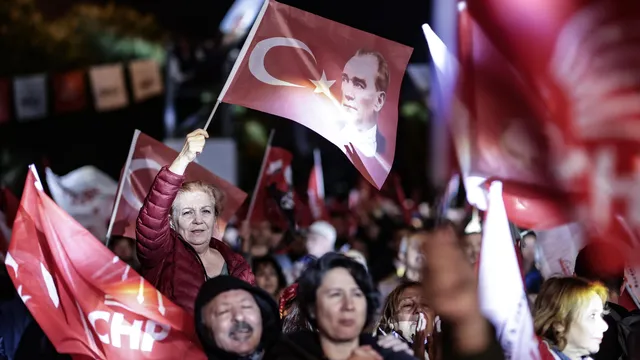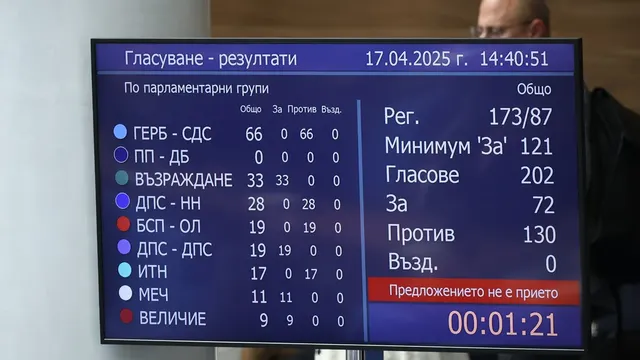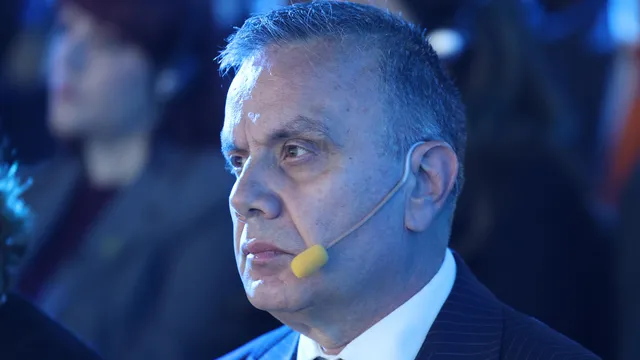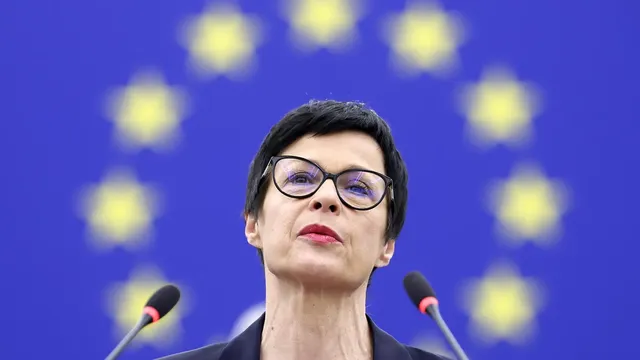Every year, far-right groups from across Europe meet in Budapest on what is known as "Honor Day" to commemorate the failed attempt by Nazi and Hungarian troops in 1945 to break out of the city during the Soviet siege.
Although some events were banned, including neo-Nazi concerts that would still be held at undisclosed locations, an annual "commemorative march" was held.
Both the commemoration and the anti-fascist counter-demonstration proceeded peacefully after warnings from the Hungarian authorities of possible violence similar to what happened in 2023.
AFP journalists estimated that 4,000 people joined the "commemorative march" from Buda Castle, some of them wearing far-right insignia and even Nazi uniforms.
Among them was Zsolt, who said he wanted to honour "the heroes... the real Hungarians who defended the city" 80 years ago.
"We demonstrate in silence to physically experience the suffering of our ancestors," the 33-year-old insurance broker told AFP, declining to give his full name.
Nearby, several hundred anti-fascist activists protested under the watchful eye of police, who patrolled the streets with drones, dogs and special operations vehicles.
One of the protesters, pensioner Julia Solnay, told AFP it was important to take to the streets "against the backdrop of the resurgence of fascism in Germany, not to mention Austria, and the whole world, which is heading for a terrible fate".
For far-right groups, the soldiers trying to flee besieged Budapest in 1945 were "defending Western Europe against the threat of the Red Army," said researcher Junadi Bulcu of the think tank Political Capital.
But because the attempt was carried out "in the name of Nazi Germany," it cannot be "glorified" in any way, Bulcu told AFP.
In 2023, the celebrations were marred by violent attacks from far-left activists abroad.
Protesters on Saturday voiced their support for anti-fascist activists who are being prosecuted by Hungarian courts for acts of violence committed two years ago.
One of them, an Italian teacher arrested and charged with assaulting neo-Nazis in Budapest, made international headlines when she appeared in a Hungarian court in early 2024 with her legs shackled.
Since then, Ilaria Salis has been released from house arrest because of the immunity she received after her election to the European Parliament.
The prosecution has asked for 11 years in prison for her.
Another suspect, a German, was extradited to Hungary last year, a decision that was heavily criticised by Germany's Federal Constitutional Court this week.
The Supreme Court said the extradition order for Maya T., who identifies as non-binary, did not take into account potentially dangerous prison conditions in Hungary, including anti-LGBTQ measures adopted under Prime Minister Viktor Orban.
Six people suspected of involvement in the Budapest attacks surrendered to German authorities last month in an attempt to avoid extradition to Hungary.
An Albanian activist, who is also on trial, is challenging his extradition from France.
Before the rally, the Hungarian government warned that it would do everything possible to avoid a repeat of 2023.
"We consider it unacceptable to organise manhunts, whether on the streets of Budapest or anywhere else," said deputy interior minister Bence Retvari, referring to the march.
"No ideology ... can justify beating arbitrarily selected people to a bloody melee," he added, pointing to leftist activists responsible for violence in the past.
Although Hungarian right-wing extremists were also blamed for attacks on suspected anti-fascists two years ago, their cases were much less publicized.
Hungarian Prime Minister Viktor Orban, who has been in power since 2010, is often accused of democratic backsliding and historical revisionism.
In 2017, the nationalist prime minister came under criticism for praising wartime leader and Hitler ally Miklós Horthy as an "exceptional statesman".
Horthy, who ruled Hungary from 1920 to 1944, pushed through anti-Jewish laws and oversaw the deportation of several hundred thousand Hungarian Jews to Nazi death camps.
Rejecting the criticism, Orban promised "zero tolerance" for anti-Semitism, boasting that Hungary was "the safest country in Europe for the Jewish community." I BGNES

 Breaking news
Breaking news
 Europe
Europe
 Bulgaria
Bulgaria







